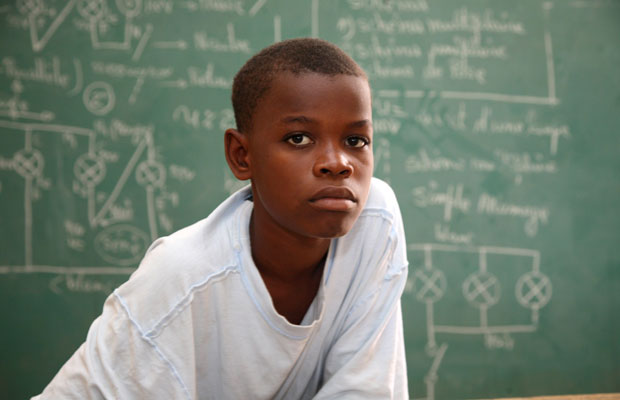
Progress in Haiti
Five years ago in Haiti, a devastating earthquake shook an already fragile country to its core. Today, thanks to focused leadership by our Salesian missionaries on the ground, steady progress toward a complete recovery — and restoration of hope — continues.
Having served in Haiti for nearly 75 years before the earthquake struck, Salesian missionaries were not outsiders rushing in to help. They were established, trusted members of the community with a unique understanding of how to get things done in the country. As a result, long after other humanitarian organizations departed and the media lost interest in the story, the Salesians remained. They established projects to restore desperately needed housing and infrastructure, and continued their efforts to provide basic necessities to those in need.
One of the most important areas of focus has been to restore educational opportunities for children and youth.
“Throughout the reconstruction process, there has been an unstoppable enthusiasm and desire among youth to return to school,” says Father Mark Hyde, director of Salesian Missions, who has visited Haiti many times. “This is because they understand the importance of education in helping them escape poverty and establish a sustainable livelihood.”
Close to 90 percent of Haiti’s schools were leveled during the earthquake, yet children continued to show up for school in the immediate aftermath of the devastation. Today, Salesian missionaries in Haiti are happy to report that:
· More than 20,000 children have returned to the newly rebuilt Petits Ecoles (“Little Schools”) of Father Bohnen — a network of 50 modest schools first established in 1954 to educate some of Haiti’s most impoverished and vulnerable youth
· Close to 800 girls and boys are enrolled in the Timkatec school, which was expanded during reconstruction to accommodate more students
· Vocational and agricultural training is now available to 340 students in Cap-Haitien
· A new nursing school is training 160 students in this vital profession
Integral to these efforts is ensuring that students are adequately nourished.
“Families in Haiti remain desperately poor,” says Father Mark. “In fact, parents are often unable to provide even a single daily meal for their children. As a result, they experience complications such as stunted growth, poor immune systems, tuberculosis, bronchitis and other health issues — all of which interfere with children’s ability to learn and flourish in school.”
To this end, the Salesians have recently secured support from two partners who are equally invested in the education of Haiti’s youth.
Mercedes-Benz is helping to finance the “Food for Haiti” project, a Salesian-led effort designed to meet the nutritional needs of children affected by the earthquake. Currently, the project is improving the nutrition of children aged 3 to 9 who live in La Saline and Cite Soleil, the two largest slums in Haiti’s capital city, Port-au-Prince. Recipients of the program — all of whom attend the Little Schools of Fr. Bohnen — receive a nutritious breakfast and hot lunch each day.
An ongoing partnership with Stop Hunger Now — an international relief organization that provides food and life‐saving aid to the world’s most vulnerable– means that many children no longer need to worry about where their next meal will come from. Students in elementary, technical and vocational schools in Lakay, Lakou, Cap-Haitien and in many surrounding communities are benefiting from this recent donation of fortified meals.
“Access to nutritious meals allows youth to be better prepared to take part in school activities and focus on their education,” says Fr. Mark. “Prepared students are more likely to stay engaged with their peers and school activities helping them to remain in school and gain an education.”
Thanks to the generosity of these partners — and the caring friends who have supported our efforts in Haiti — these children no longer go hungry, and their cognitive abilities are increased. Further, the meals provide an additional incentive for students to attend school, where in addition to classroom learning, they have opportunities to socialize and develop relationships with their peers. This process is important for their rehabilitation and normalization after the psychological trauma of an earthquake.
Our mission brings new hope to Haiti, and to many other countries where disaster strikes. What’s your mission?

